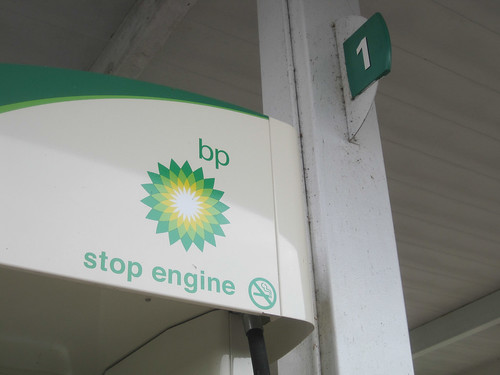
When I took a look at Royal Dutch Shell a couple of weeks ago and told you why I think it’s a great share for novices, part of my reasoning was that Shell carries lower upstream risk and has better global diversity than BP (LSE: BP) (NYSE: BP.US).
So does that mean I don’t rate BP as an investment for novices? Actually, no, I think BP is a pretty good one too — in fact, I have it in the Fool’s Beginners’ Portfolio. In the long run, I think BP will serve us well. Here’s why:
What risk?
About 17% of BP’s turnover comes from its upstream exploration and production business, which does place it at higher risk than Shell with just 9%. And when the Deepwater Horizon well blew and spewed crude oil all over the Gulf of Mexico, we saw what that risk can look like when it really goes bad. The disaster cost 11 people their lives, and created an ecological and economic nightmare for many.
So it would have cost BP investors dear, you’d have thought? Actually, the damage to your portfolio would have been a good bit lighter than you might imagine.
OK, at the last count, the cost to BP had come to more than $42bn and it has had to dispose of a number of assets to raise cash. That’s a lot of money, but to put it into perspective, BP’s 2012 revenue topped $388bn!
The share price
What’s been happening to BP’s share price? Well, the day before the disaster, the shares closed at 640p. Today, three and a half years later, they’re 30% down on that at around 450p, which is undoubtedly a bummer.
But there have been dividend payments, and though they were slashed in the aftermath, in the period since then you’d have earned a total of 47 pence per share. So your 640p on April 19, 2010, would be worth 497p, which lowers the loss to 22%.
That’s still not an investment performance to retire on. But it is the loss from — and get this — the largest accidental marine oil spill ever in the history of the oil business!
If that’s as bad as it gets, we should be praising BP as an amazingly safe and resilient investment rather than condemning it as one of high risk.
No shocks please
Now, I know one of the things I really urge novices to avoid is the possibility of short-term loss, and the short-term loss at the time could well have scared newcomers away.
But the Deepwater Horizon horror really is the kind of thing that almost never happens, and it’s at the level of risk that is really not much higher than investing in shares in general and which we can not realistically avoid. Your chance of losing money is far higher if you invest in profitless blue-sky prospects, overpriced “get-rich-quick” bubbles, or whatever the sots down the pub are raving about.
If you’d bought BP shares at their peak price just before the fan turned brown, you’d still almost certainly be looking at a very desirable overall return in the decades ahead, with considerably lower risk than one might intuitively think.
Nice yield
And you’d be on for a better-than-average 3.6% dividend yield this year based on your original buy price even if you’d bought right at the top — and 5.2% if you topped up today. And it’s heading upwards, year on year.







